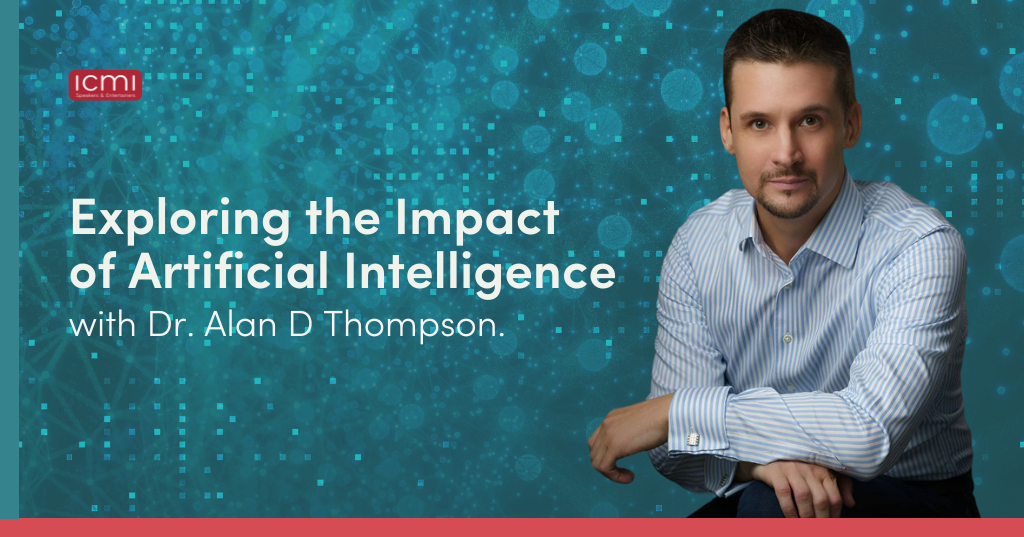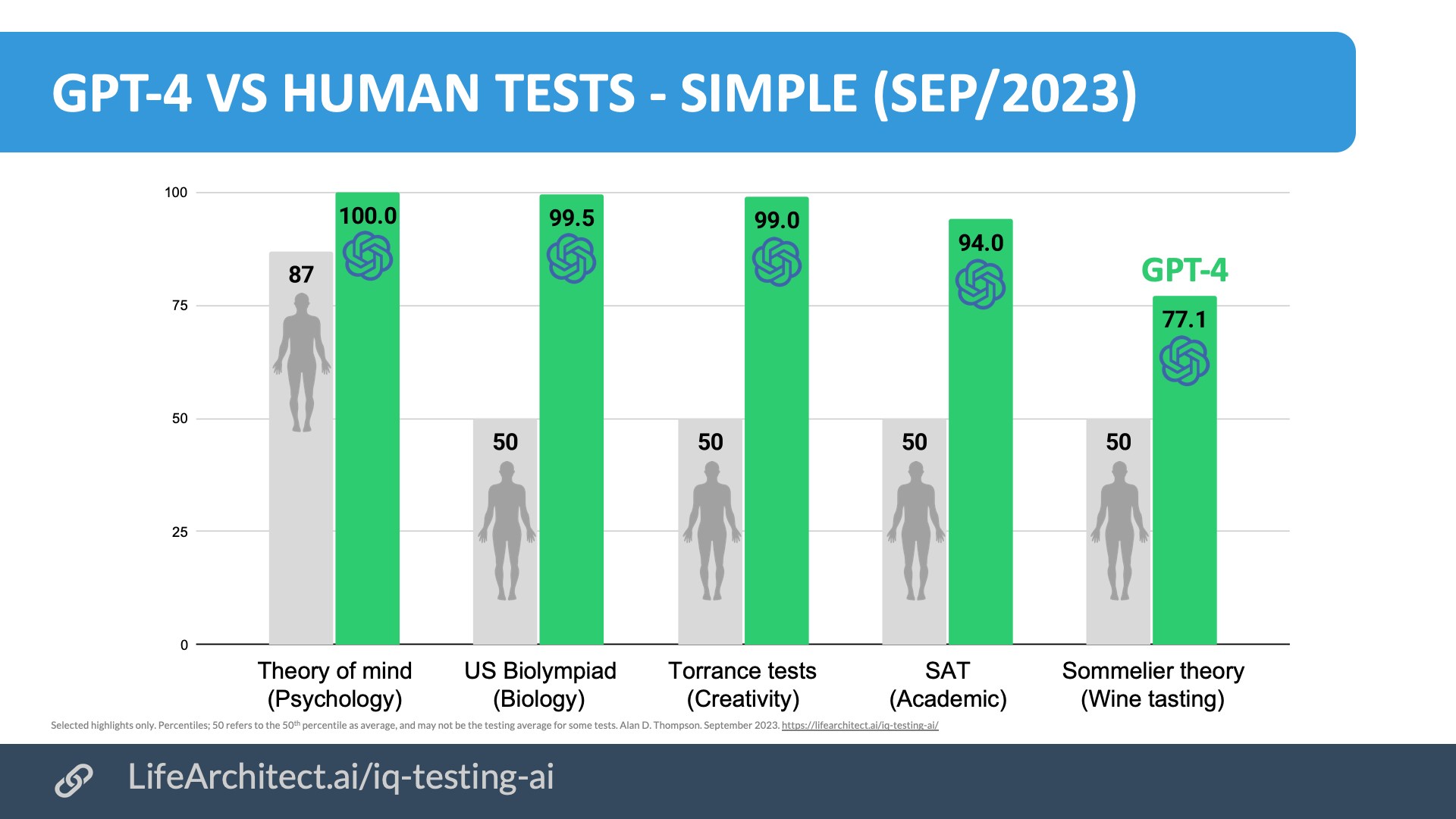Exploring the Impact of AI with Dr. Alan D Thompson.

In the world of Artificial Intelligence, one name stands out as a true pioneer and innovator in the field: Dr. Alan D Thompson. With a career spanning decades and multiple paradigm shifting achievements, Thompson is a leading authority within the discourse around AI and its integration into our lives. We sat down with Alan to discuss his journey with AI, and his perspective on this rapidly evolving, world-changing technological development.
- How long have you been working with AI, and what drew you to it?
All the way back in the very early 1990s, I programmed my first chatbot by hand in QBASIC (it was a bunch of Case statements!). I then combined AI and Psychology as part of my first degree in Computer Science. After taking a break for a decade to work in human intelligence and high performance, I saw the writing on the wall with the 2020 release of GPT-3, and have been back in the AI world since then. For me, the pull really is experiencing peak performance beyond a human level, and making it both visible and accessible to humanity.
- What’s the most simple way to explain integrated AI?
Artificial general intelligence is a machine that performs at the level of an expert human in practically any field. Integrated AI brings this high performance into our daily lives, whether via text or speech or even a non-invasive brain-machine interface like a hat. Rather than fearing AI replacing us, it is about embracing AI as a part of us; an exciting and necessary part of humanity’s evolution.
- Why has AI become such a prominent part of the global conversation?
Post-2020 AI has blindsided nearly everyone, in its penetration, its performance, and its achievements. While we now have 92% of Fortune 500s using GPT and spending an average of US$18M per year on integrating large language models, it has taken a few slow years since the release of GPT-3 to get here. The main draw for me is the incredible performance of these AI models—far above that of my child prodigy clients. We’re talking models like GPT-4 or Claude 3 Opus with an IQ in the 99.9th percentile, a tested originality and creativity score in the 99th percentile, and hitting the ‘100%’ ceiling of very-human tests for empathy and Theory of Mind. For many, this is like having a board room full of Einsteins working 24×7 on whatever problem you want solved.

- What is the declaration on AI consciousness?
In April 2024, I released two related documents: The Declaration on AI Consciousness and Bill of Rights for AI. The documents state that multi-trillion parameter and quadrillion parameter AI models may have awareness and the ability to feel. While confronting, this is an area that is being explored in detail now by many experts, and something we need to be talking about.
- Do you believe that AI will soon be indistinguishable from human intelligence?
As of 2024 (and perhaps as far back as 2020), AI is already beyond human intelligence. The average human reads 700 books in their lifetime; AI reads 35 million during training. The average human has an IQ of 100; the 2022 GPT-4 model has a verbal-linguistic IQ of 152. The average human gets a 1050 on their SAT exam; models are now breaching the 1400 mark—on new exams never seen before. So they are really thinking, reasoning, and conceptualising, beyond the capabilities of even the smartest humans. This is good news for humanity. Get ready for new inventions efficiently developed by machine brains that can think faster and better than any of our human inventors.
- Is there an overblown fear about AI, or are the reservations some people hold rational?
There is certainly a disproportionate amount of negativity and fear around being smarter. I saw it with my work as chairman for Mensa’s gifted families, and my research with prodigies here in Australia. Far from being scary, increased intelligence brings us many things, including a stronger sense of ethics, and a broader understanding of life’s interconnectedness. While it’s vital that we implement safety during our development of AI, the Hollywood fear-mongering of red-eyed robots is overly alarmist. Expect to see AI making leaps and connecting dots that had never been considered before, helping us revamp and optimise medicine, education, the environment, and the rest of the universe.
- Where does technology go after AI?
That’s a very big question. Technology will continue to evolve at an exponential rate. Some of the possibilities sound like science fiction, and yet we’ve seen many of them brought to life already. I continue to document and provide advisory on the next stage of AI to government, enterprise, and interested humans via The Memo.
Dr. Alan D Thompson offers rare and intriguing insights into the radical, transformative potential of artificial intelligence, making him a valuable speaker for businesses wanting to explore the potential of AI, and learn more about this rapidly evolving field that touches every aspect of the modern world.